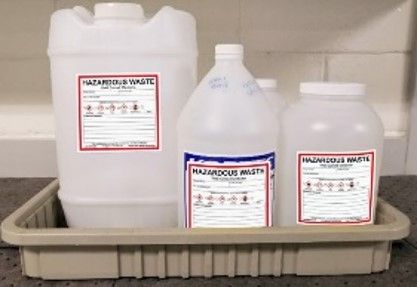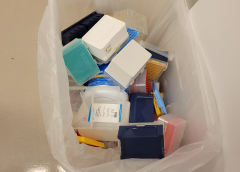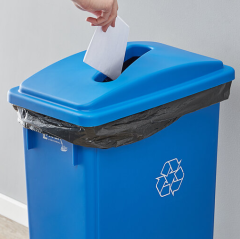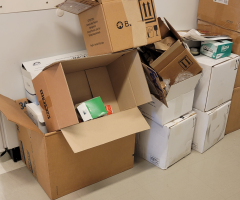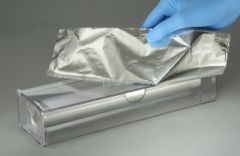Diesel trucks carry Manhattan's garbage 7.8 million miles every year. That's the equivalent of driving more than 312 times around the Earth!
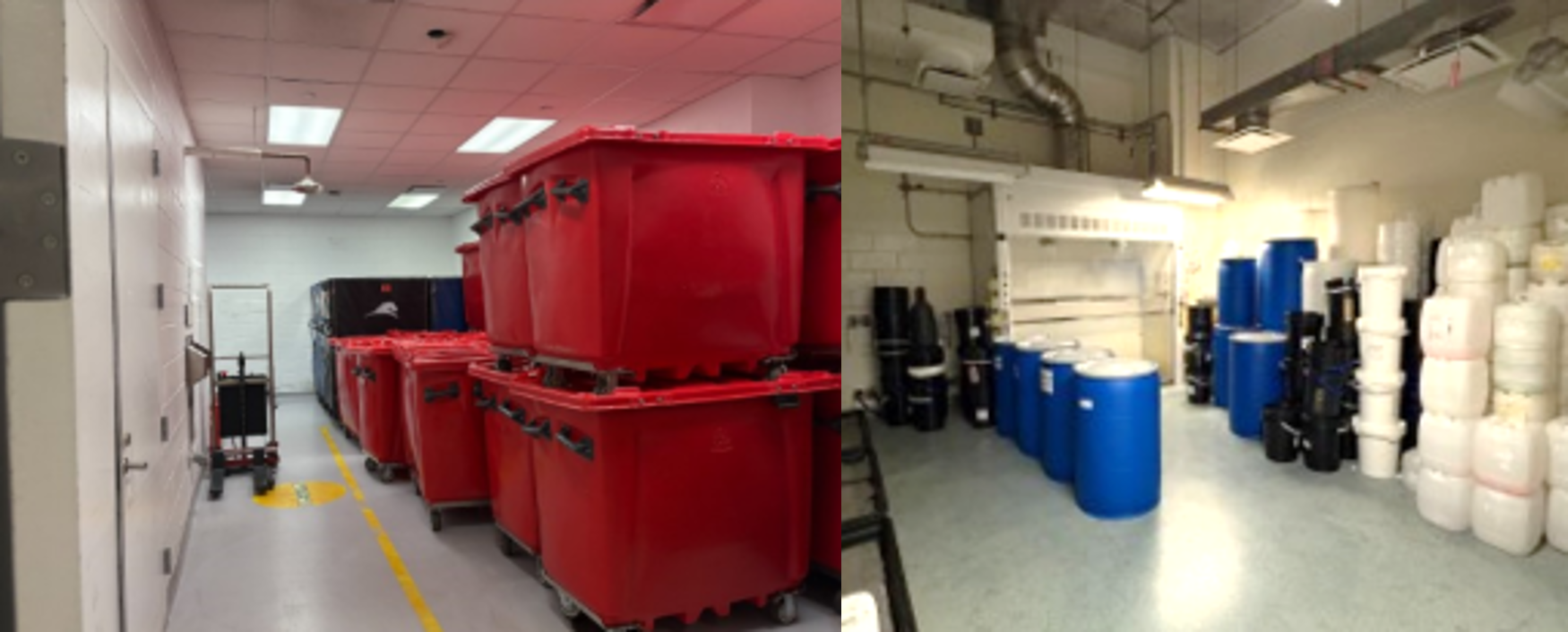
What can be recycled in labs?
Reagent and media bottles
--> Bottles must be triple-rinsed, and labels should be crossed out.
--> Original containers must not contain radioactive isotopes or chemicals, biological hazards (treated or untreated), or acutely toxic chemicals (P-listed).
Note 1: if you are located in the 1300 York Ave building and have an accumulation of large bottles (more than 2), then you need to submit a work order for bulk pick up.
Note 2: Sometimes labs complain that their bottles are not picked up. This can happen if it's not clear that they are meant for recycling, as the housekeepers don't want to risk to throw out something that a lab still needs. Therefore, place them next to the recycling and clearly label them as in the picture below. If submitting a bulk pick up request, then label as"For recycling".
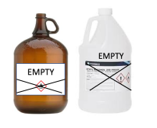
Cleaned containers (pipette tip boxes, other non-contaminated rigid plastic containers, etc.)
What cannot be recycled in labs?
- Contaminated items - namely if they have been in contact with hazardous chemicals, hazardous biological, and/or radioactive materials
- Soiled items (e.g., dirty with food)
- Mixed materials (e.g., item made of both paper and plastic)
- Pipette tips and Petri dishes
- Paper towels
- Styrofoam
- Ice packs
Click here for more information about hard to recycle items.
What Can Be Placed in the Trash vs the Red Bag?
Lab materials such as PPE, plasticware, and paper towels with minor exposures to non-acute toxics or non-hazardous materials can be disposed of with regular trash.
Reducing red bag waste can improve the environmental footprint of the lab because red bags go through an energy and water-demanding autoclaving process before being sent to landfills.
What is considered contaminated and goes into red bag waste?
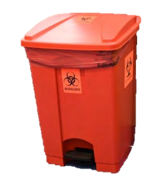
- All BSL-2 & BSL-3 PPE are considered contaminated because of their use with infectious agents and must be disposed of as red bag waste.
- PPE and labware used in BSL-1 procedures (recombinant and synthetic nucleic acids) is considered contaminated until it is disinfected with 10% bleach, soap, or other disinfectant.
- PPE and items with significant exposure to non-acute toxics or non-hazardous materials.
Items exposed to HHOPs or with significant chemical exposure should be collected as chemical waste.
